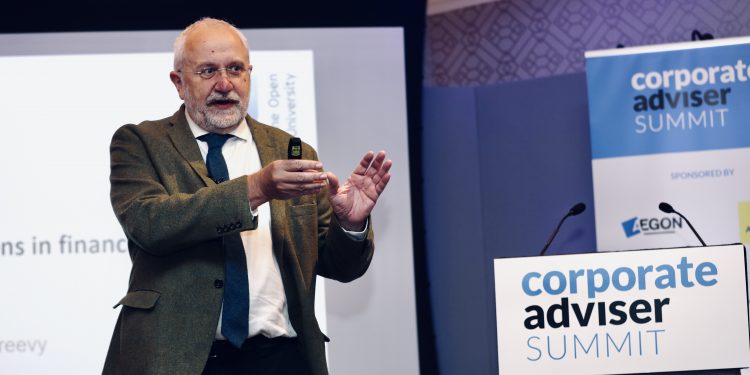It is hard to change personalities but you can change attitudes in relation to financial behaviours. This was one of the main takeaways from Open University Business school professor of organisational behaviour Mark Fenton-O’Creevy at the Corporate Adviser summit.
He was talking to delegates about his research into the importance of emotion when making financial decisions. This research has studied a variety of different situations, from investment traders to impulse buyers.
Fenton O’Creevy said: “We need dialogue about how we get people thinking about their emotional relationships to their money.” This he added would hopefully help people make better emotional decisions. This he says also has implications for the way financial education is tackled both in schools and the workplace.
The big focus of financial education is often about financial markets but the problem is that financial knowledge does not deal with issues such as impulsive buying he said. Though money brings about power, status, freedom, and security, impulsive buying does have significant adverse effects, Using money as an emotional repair is not a harmless pursuit said O’Creevy. But influencing people to save impulsively instead can and has worked in the past he added.
Emotions give us information and drive reactions and suppressing our emotions gets rid of that information added O’Creevy, “Most of the time our emotions are tools for rational decision making but just like we make mistakes in memory we make mistakes in emotions,” he said.
Dunbar’s research on client portfolios found that investors were significantly underperforming the assets they were invested in, due to mistiming the market. According to O’Creevy, investors were “systematically panicking and exiting low.” Commitment mechanisms can be used as a way to protect someone’s strategy and manage emotions but, at the same time, some people are willing to take risks in pursuit of other goals he added.





